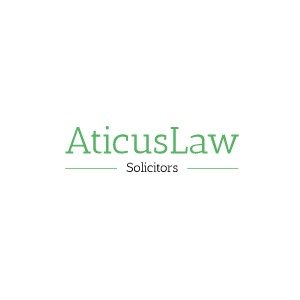Best Child Abuse Lawyers in Wilmslow
Share your needs with us, get contacted by law firms.
Free. Takes 2 min.
Free Guide to Hiring a Family Lawyer
List of the best lawyers in Wilmslow, United Kingdom
About Child Abuse Law in Wilmslow, United Kingdom:
Child abuse laws in Wilmslow, United Kingdom, are geared to protect children from physical, emotional, and sexual harm or neglect. These laws fall under the Children Act of 1989, a legislation that prioritises the welfare of children. Any act inducing physical or emotional suffering to a minor is legally considered abuse, and perpetrators can face severe penalties. The law also provides provisions for at-risk children, including legal interventions and support services.
Why You May Need a Lawyer:
If you are facing allegations of child abuse, you may face significant legal repercussions and thus need a skilled lawyer. Cases of this nature are complicated and often highly emotional, requiring expert knowledge in child abuse law for a fair defense. Equally, if you suspect a child may be suffering from abuse or neglect, a lawyer can guide you about the necessary steps to report the abuse and potentially save a child's life. Legal representation will also be crucial when navigating social services or family court proceedings related to allegations of child abuse.
Local Laws Overview:
The most critical legislation relevant to child abuse in Wilmslow is the Children Act of 1989. This Act states that the child’s welfare should be the court’s paramount consideration. It also introduces the concept of parental responsibility, emphasising that parents are responsible for the safety and well-being of their children. Other relevant laws include the Protection of Children Act 1978 and the Sexual Offenses Act 2003, which deal with child exploitation and sexual crimes against children, respectively.
Frequently Asked Questions:
What constitutes child abuse?
Child abuse can be presented in many forms, including physical abuse, emotional abuse, sexual abuse, and neglect. Any act or behavior that harms a child or places them at risk can be considered child abuse.
What should I do if I suspect a child is being abused?
In the UK, if you suspect a child is being abused, you are advised to report it to local council's child protection services or the police. Documentation, such as visible signs of injury or any witnessed unsafe behavior, is beneficial.
What are the penalties for child abuse?
The penalties for child abuse in the UK can range from substantial fines to lengthy incarceration, depending on the severity of the crime. Perpetrators areoften prevented from contacting the victim and from working with minors in the future.
Can a lawyer help me report child abuse?
Definitely, a lawyer can guide you on the correct legal route to follow when reporting child abuse. They can also help safeguard the rights of the abused child in subsequent proceedings.
Will my identity be protected if I report abuse?
Yes, the identity of individuals who report child abuse is usually kept confidential unless the case proceeds to court where the information is crucial to proceedings.
Additional Resources:
Alongside hiring a reputable lawyer, you might find it beneficial to seek help from Oxfordshire's Child & Family Well-being Service or the National Society for the Prevention of Cruelty to Children (NSPCC), organisations aiming to prevent child abuse. Websites such as Child Law Advice provide comprehensive information about child abuse laws and legal procedures and can serve as a useful resource.
Next Steps:
If you need legal assistance in a case of child abuse, the first step is to secure legal representation. It is essential to choose a lawyer who has experience in child abuse law. Be prepared to fully cooperate and disclose all necessary information for your lawyer to build the strongest case/defense. Finally, follow your legal representation's advice as you engage with law enforcement agencies, social services, or the court system.
Lawzana helps you find the best lawyers and law firms in Wilmslow through a curated and pre-screened list of qualified legal professionals. Our platform offers rankings and detailed profiles of attorneys and law firms, allowing you to compare based on practice areas, including Child Abuse, experience, and client feedback.
Each profile includes a description of the firm's areas of practice, client reviews, team members and partners, year of establishment, spoken languages, office locations, contact information, social media presence, and any published articles or resources. Most firms on our platform speak English and are experienced in both local and international legal matters.
Get a quote from top-rated law firms in Wilmslow, United Kingdom — quickly, securely, and without unnecessary hassle.
Disclaimer:
The information provided on this page is for general informational purposes only and does not constitute legal advice. While we strive to ensure the accuracy and relevance of the content, legal information may change over time, and interpretations of the law can vary. You should always consult with a qualified legal professional for advice specific to your situation.
We disclaim all liability for actions taken or not taken based on the content of this page. If you believe any information is incorrect or outdated, please contact us, and we will review and update it where appropriate.








